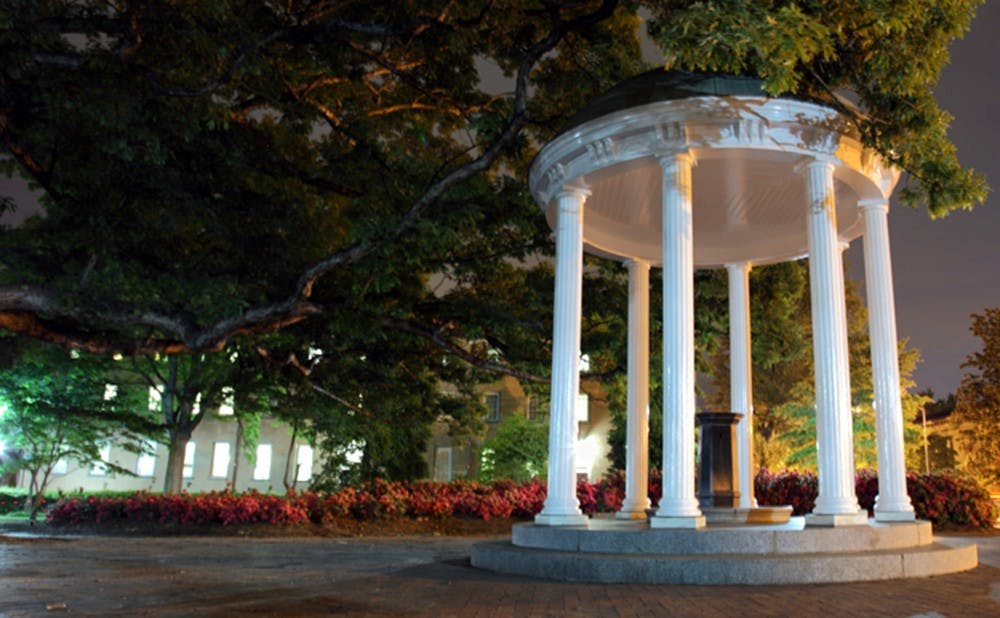The Board of Trustees at the University of North Carolina at Chapel Hill will soon decide on a proposal to rename a building associated with an alum who had connections to the Ku Klux Klan.
The Real Silent Sam Coalition, a student activist group, has submitted a proposal to the UNC Board of Trustees requesting the name change of Saunders Hall, a history department building on UNC’s campus. The proposal asks the Board to change the name to Hurston Hall to honor writer Zora Neale Hurston, who attended classes at UNC but was denied status as an official student because of her race. The discussion comes less than a year after Duke changed the name of freshman dormitory Aycock Residence Hall because of concerns of its namesake’s ties to white supremacy.
Multiple university history professors have confirmed ties between William L. Saunders—for whom the building is named—and the KKK, known for hate crimes against racial minorities involving intimidation tactics and lynchings.
“On days like today I see these tour groups walking around campus, and I want to stop them and say: do you know who this building is named after?” said Jim Kuras, a third-year graduate student at UNC who works in the geography department in Saunders Hall and is a member of the Real Silent Sam Coalition.
The Real Silent Sam Coalition has also asked that the University install a plaque to contextualize Silent Sam, a statue commemorating UNC students who served in the Civil War, most of whom fought for the Confederacy. The group also requested that UNC implement required curriculum about its racial history.
The UNC Board of Trustees University Affairs Committee hosted a community meeting Wednesday in which students and faculty weighed in on the proposals. The committee will consider the comments and feedback received from the meeting and an online public feedback forum. They will make a decision by the end of May.
Alston Gardner, vice chair of the UNC Board of Trustees, said that he and the Board will aim to make an evidence-based decision that emphasizes the pedagogical goals of the University and gives context to the history of its campus. He acknowledged that no curation currently exists to describe the relationships between structures in McCorkle Place, the area where the Silent Sam statue is located.
Gardner expressed enthusiasm about the possibility of a racial history course for UNC students, which he said has been proposed as an online course spanning one to three hours.
“We’re excited by the opportunity to teach a more complete history of North Carolina,” he said.
Kuras acknowledged the importance of considering UNC’s racial history.
“It has become clear that this isn’t a bunch of students on our campus trying to ruffle feathers,” he said. “This is an important conversation that needs to be had.”
Other universities have recently engaged in similar dialogues. Last year, several Duke organizations, including Black Student Alliance, NAACP and Students for a Democratic Society put forth a resolution asking the Duke Board of Trustees to change the name of Aycock, named for former North Carolina governor and white supremacist Charles Aycock. The University opted last summer to change the name of the dormitory back to East Residence Hall, its original name.
The Saunders Hall debate differs from the Aycock debate in that Aycock neither attended nor gave funding to Duke.
Gardner said that UNC differs from Duke in that UNC is a public university, so it places a greater emphasis on educating students about North Carolina’s history.
Prashanth Kamalakanthan—Trinity '14 and former chair of Students for a Democratic Society when the organization helped put forth the resolution to the Duke Board of Trustees last year—noted the importance of university dialogues about racial history. These discussions have taken root at universities including Duke, UNC, the University of Virginia and East Carolina, Clemson and Washington and Lee Universities.
“To currently oppressed people and disadvantaged groups, [these dialogues] say to them that your history and your current material well-being are more important than said person’s ego,” Kamalakanthan said
Adrienne Harreveld, Trinity ’14 and program coordinator for the research network on racial and ethnic inequality at Duke Consortium on Social Equity, said that having these discussions allows Duke and other universities to be more critical of their histories.
“It really brings up conversations that aren’t really had about the role of historical figures in governments and universities,” she said. “I think it’s an opportunity to be more open to narratives about race and be more willing to criticize historical and political leaders.”
Gardner noted that the UNC Board of Trustees will focus on increasing UNC students' exposure to narratives about North Carolina's racial history, regardless of the Board's decision about the renaming.
“Whether we leave the name up or take it down, we would do something significant with the building to tell its story,” he said.
Get The Chronicle straight to your inbox
Signup for our weekly newsletter. Cancel at any time.

